David Archuleta on Earthly Delights, Mormonism, and Gay Identity
The “American Idol” alum talks about his new EP and tour, his queer journey, and how leaving the Mormon Church inspired his upcoming memoir.

“It was kind of confusing,” David Archuleta says, recalling the time roughly 16 years ago when he was first asked to write a memoir. “What am I supposed to talk about? I’m 18 years old, and I feel like I’m just starting my journey, and you want me to write a memoir now?”
That memoir, Chords of Strength: A Memoir of Soul, Song, and the Power of Perseverance, was written by Archuleta with Monica Haim and published by an imprint of Penguin Group in 2010. He was barely an adult at the time, and it had only been two years since he competed on American Idol, becoming the season seven runner-up.
That was a full decade before Archuleta came out publicly as a queer-identified man in 2021 — a life-altering event that set off a series of seismic twists and turns, all of which the singer will explore in Devout: How I Lost My Faith to Find Myself, a new memoir from Archuleta to be published early next year.
“I’m really excited about [Devout] because I get to share it from a perspective of understanding more of my childhood and growing into my teenage years, and into adulthood,” he says. I was still basically a kid when I wrote the last memoir.”
Devout will offer insights into the 34-year-old’s identity, his thoughts about the broader LGBTQ community, and where he thinks he fits in. Fortunately, he was willing to touch on those topics and give something of a preview during a recent Zoom interview with Metro Weekly that also focused on his new music and upcoming tour.
In addition to detailing his coming-out story and process, Devout will shed light on the process that Archuleta’s mother, Lupe Marie Mayorga, went through in response — ultimately, a heartwarming transformation of Mayorga fully accepting her son by renouncing her Mormon faith over the church’s obstinate — and arguably harmful — unwillingness to allow out and LGBTQ-identified individuals to be members of the congregation.
“At first, she didn’t accept me and what I was doing,” Archuleta says. “And she wanted to make it known vocally that she was not accepting what I was doing. ‘David, I love you, but I love God more, and I can’t accept this about you.’ I wasn’t really offended by that because I grew up with the same teachings, where God and what he supposedly said mattered more than anything and anyone else.
“I don’t need you to accept what I’m doing, I just want you to respect that I’m making the best decision for me right now, and learn with me,” was Archuleta’s response to his mother. “And she was willing to do that.” A pivotal moment in her transformation was reading People magazine’s in-depth June 2021 profile that examined, for the first time publicly, her son’s struggles with coming out and his identity as a queer man.
“She has said something just clicked [after that]: ‘I don’t want to leave my family just to follow God. I can follow God and accept my son,'” he says. That bold motherly embrace would go on to inspire “Hell Together,” a 2024 ballad whose title stems from another pithy way his mother explained her logic. “‘If you’re going to hell, we’re all going to hell together.’ She just said it in a funny way,” Archuleta said in a 2023 profile in the Longview News-Journal.
“I’m grateful that I have a mom who was willing to change her mind and be supportive — not all queer people get that from their parents,” he tells me. For willing parents and loved ones like his mother, “it can be a life-changing experience for them as well — especially if they grew up with very conservative or very religious beliefs against the LGBTQ community. They have to go through a really crazy mind-reprocessing experience. So just a big shout-out to all the parents, the siblings, and friends who are willing to go through that and understand better the people they love and care about who are queer.”

METRO WEEKLY: Let’s start with your latest project, the six-track EP and national tour — your first in five years — playfully named “Earthly Delights.” You’ve characterized the project as “my indulgence mode,” featuring songs that take in “the pleasures of what I always thought would keep me out of heaven.” Are you ready to share your delights on stage? With that kind of talk, you better get ready!
DAVID ARCHULETA: [Laughs.] I’m getting there. I’ve been doing music videos and photo shoots, and getting the songs all finished for mastering and ready to upload to the streaming platforms. It’s a busy but exciting time.
MW: Tell me more about the tour, which kicks off in mid-September. I understand you’re planning it to be both more intimate and more of a production than you’ve done before.
ARCHULETA: Yeah. Before, I would just sing songs and that’s it, so there wasn’t as much preparation. But now, even though they’re more intimate shows, I still want it to be energetic, and so I’m involving choreography and bringing dancers on this tour.
And I’m working on themes. I want it to be a bit — I don’t know if theatrical is the word — of a mini-production like Beyonce or Lady Gaga or Kanye West would do, where they just create moments where you feel like there’s a character, and the character that’s portrayed switches, depending on the theme of the part of the show.
I’m trying to look for themes for outfits, and get the lighting to kind of go with the theme of the songs. I’m really trying to step it up as an artist and performer. It’s not like I have necessarily a budget for it, but I feel like I’m investing into growing as an artist. And I just want to give fans a really good, fun experience.
MW: Unfortunately, you don’t have a Washington-area stop planned for the current tour, but of course, you were just here during WorldPride DC in June. Were you able to take part in any of that aside from your headlining Saturday performance on the Capital Stage?
ARCHULETA: No. We flew in that morning, I had a soundcheck and performed, and then we went straight to the airport after my show. I had another performance the next day.
MW: Do you like performing at Pride events?
ARCHULETA: Ever since I came out, I get asked to do a lot of them, and they’re always a really fun time. It’s fun to build a sense of community with other people who are either part of the LQBTQ community or allies. It’s been nice to find a space where that can be more front and forward versus your normal day-to-day life, [and where] people are just ready to have a good time and really let loose in a space where they feel safe to be themselves.
MW: After the tour wraps this fall, you’ll shift your attention to promoting something else entirely: a memoir. Devout: Losing My Faith to Find Myself will be published this February. How long has that been in the works, and what has the experience been like of revisiting pivotal moments from your life so far?
ARCHULETA: It’s definitely been in the making for a couple of years now, because I write and then a little more happens, and it’s like, “You know what? I would like to shift my perspective a little bit.”
It’s also just interesting to talk about the things that most affected you, that you still have childhood wounds on, and that you’re still learning about yourself. Overall, it’s been a positive experience and I’m excited to share my story. A lot of people watching American Idol probably didn’t know about what was going on behind the scenes, and it’ll be nice to share that and express the hard things that happen to make something succeed and work.
MW: A big part of the story is your experience growing up as “a poster child for the Church of Jesus Christ of Latter-Day Saints” and the very real impact that had on your struggle as an adult to come out. I think I know the answers, but just so we’re clear: Are you still a member of the church, and do you still consider yourself Mormon?
ARCHULETA: No, I’m not. I think religion is something that’s helpful for people to have. The subtitle on the book is Losing My Faith to Find Myself, and I venture into why I did step away.
It’s a lot of different things. I touch on my life growing up as a Mormon entering into the public scene on American Idol, becoming a teen pop star, and then the dynamic I had with religion, leaving religion, and coming out and figuring that out. There are a lot of different stories that I tell in the book. People who may have grown up with religion and stepped away can relate and hopefully find community. And people who may be religious and wonder why someone would walk away — I feel like that’s a thing in religion: “Why would you walk away? That’s just something you don’t do. Or you’re not supposed to. You’ll lose your happiness if you do.” So it’s also perspective on that, and the struggle and the heartbreak, and the devastation they have to face.
For some people, it’s just like, “Ah, this isn’t for me.” But people like myself, it was a lot harder to walk away because I didn’t want to. For me, in the end, it was for the best, and I’m happy with the decision I made. At first it was really difficult, but I’ve ended up in a space where I feel really content and my perspective has changed.

MW: One thing from your biography that I know little about is the missionary work that you pursued for two years in Chile roughly a dozen years ago, from the spring of 2012 to the spring of 2014. What motivated you to go on the mission?
ARCHULETA: I was still very much a believing Mormon, and it’s part of just what you do as a Mormon: you go on a mission. It’s expected of you, but it was something that I always saw myself doing as well. I didn’t really question it. Before I even knew that I had feelings for anybody — guy or girl — I grew up with that belief. I learned some really important lessons about life on my mission, and I’m glad I went.
I’m not glad about everything about it. I don’t believe the teachings that I was teaching people anymore. I’m like, “Oh my gosh, I was spending two years trying to convince people of beliefs I don’t [share] anymore.” But regardless, I loved my time there. It was a new experience to connect with other people, and it was an opportunity for me to step away from the spotlight to just reconsider what really matters about life.
You get caught up in attention-seeking, and a lot of people tell you that fame and power is the most important thing to succeed in life, and that you’ve really made it once you’ve made the spotlight and have a fanbase and millions of people adore you. Going on the mission, I got to rewrite what the purpose and meaning to life is for me, and I didn’t have to meet other people’s expectations of what that was supposed to be — of fame and fans, and having the hit song, and touring, and being adored. It’s really about connecting with people.
Maybe I screwed up the trajectory of my career a bit by doing that, but I also feel it gave me perspective, and it allowed me to just re-center myself. To build my own reason to live my life, rather than to live for other people, by jumping off the rails onto a completely different route for a while.
Essentially, being a missionary, I was living my life for the Mormons instead of just for fans and for fame. It allowed me to remove myself and just start over — kind of like how coming out did. I went from American Idol and my singing career in entertainment, to jumping off the rails to Mormonism, to then jumping off the rails again to come out, and the next chapter of starting over.
MW: You started your mission work in Chile four years after you became a well-known celebrity from competing on American Idol in 2008. How well known were you on the mission? Did you get recognized very often when out in public down there?
ARCHULETA: I wasn’t terribly known, but there were times. It was 2012, so a lot of the younger, teenage-to-college-age girls knew who I was. There were times I’d get followed or even chased by a group of girls screaming while I was on my mission, and I just looked at it as like, “Oh, I’m supposed to be focused on being a servant to God, not getting attention from a bunch of girls.”
MW: You also didn’t necessarily want that kind of attention, at least from girls. Right?
ARCHULETA: It was whatever. I would’ve felt the same way, to be honest, if it was a group of guys. Cause when I’m focused, I’m really focused, and I was focused on my mission. If anything, I was around a bunch of guys, but [they were] missionaries, and the missionaries acted the same way. My biggest fans on the mission were the Mormon missionaries, because most of them were from Utah. And I was such a big deal in Utah at the time, and for Mormons, because I was the kid who was on American Idol, and then who became an artist. And then I left it to be a missionary. So I was looked at as a hero by a lot of these missionaries, both girls and guys.
If anything, I was annoyed by the attention from them as well, because I was like, “I’m not here for that.” I was really focused on trying to please God. And part of that’s connected to feeling like you are bad and you need to fix yourself. The mission was one of the things for me to do to show my faith to God, [hoping] that he would heal me. Because I looked at being queer as something to be healed from and a problem to fix. But it wasn’t the only reason I was out there.
MW: I get that. You were young and still getting to know yourself and trying to figure things out. And it would take a while longer, and the remainder of that decade. You didn’t publicly come out until 2021, right?
ARCHULETA: I came out when I was 30, yes. It’s a little complicated. There are different phases of coming out. The first time I acknowledged my sexuality was as a missionary. And so when I got back from my mission, I let my family know. I was like, “I think I’m gay.” But it was a bit confusing to me, so that’s why I call myself queer now. When I came out, I was like, “It’s somewhere on the scale of bisexual.” But then people think, “bisexual is 50-50” and, “Oh, you can still marry a girl that way.” So for me, I just say queer. It’s a broader term. It gives me more room to figure myself out and to be myself.
But that’s why it wasn’t completely grotesque for me to get attention from girls. It was a little uncomfortable, but it also wasn’t the end of the world if a cute girl was giving me attention. I prefer to date guys, but it’s nice to kiss a girl. It’s not going to be my first choice, but it doesn’t gross me out. There are still some girls that I find attractive and get a little shy around or blush. I’ll still go on dates with girls if it makes sense, but it’s just not very often that that happens.
I’ve been in relationships with girls and gone on dates with girls even after coming out, and I’ve been in relationships with guys and I’ve dated guys. I enjoy the experiences I have, and I enjoy the fact that it’s just a broader perspective on things.
I think that’s why I’ve been kind of torn. When you’re part of the LQBTQ community and live in L.A., there’s the West Hollywood scene — it’s a queer space, but I think a lot of people just assume you’re a gay man and you are just like them. But it’s important to remember it’s the LQBTQ community: There’s a reason why there are so many letters in it. A lot of times, the gay guys in West Hollywood will just project their experience onto you and almost discredit your experience.
It’s [important] that there’s room for people to be somewhere on a spectrum of figuring themselves out. It could be that I just need a little more time to figure myself out, but I don’t think it’s necessary to say, “I’ve got to decide this is what I am.” I’ve always been indecisive.
I feel like that also bleeds into my sexuality, where it’s hard for me to be decisive. It’s like when I’m ordering off the menu, “This looks really good, and that looks really good, and that looks really good. Should I get the Cobb Salad? Should I get the Grilled Cheese Sandwich? Should I get the Chicken Breast? They all sound really good.” Just make a decision. But for some reason, my brain has a hard time just honing in and deciding on one thing.
That’s been my challenge with music. I like all these genres, and I feel comfortable in a lot of them. I love R&B, I love soul, I love gospel music. Mostly growing up, I loved gospel, but there was a time I was exploring with Christian music. And I love pop music. I love acoustic singer-songwriter music. I like just straight-up dance-pop. And people are like, “Dave, you’ve got to decide on something because you’ve got to stick to one thing.” And I’m like, “Well, it’s hard for me to, because my brain bounces around a lot. And I don’t know why it does, but I like all of this.”
I identify most with what a gay guy experiences with attraction and tendencies, but not entirely. So it’s kind of like you constantly feel out of place. But I have found other people who experience the same thing as me — a few friends I’ve made putting myself out there, through dating, that also understand it.
I try to hint at it by saying, I’m queer. I don’t consider myself 100 percent gay. I can identify as gay, but I use queer because it kind of shows, “Hey, if you want to know more, there’s a little more nuance to my sexuality than what you might assume.” I talk about in my book when I tried to figure [it] out, in the early 2010s. And I found a communion [online]. I’m like, “Oh my gosh, people are bisexual.”
What happens if you feel like you’re somewhere in between? I’m mostly [into] guys, but it’s not 100 percent for me. When I looked it up, at first, people were like, “Oh, bisexual people are just gay people in denial who don’t want to fully accept it” or “They’re just straight people who are curious about sexuality, but then they end up marrying.” I feel like we’ve grown since then.

MW: One of the tracks on Earthly Delights, “Home,” touches on what you’re getting at in terms of trying to describe the feeling of love and being loved. What motivated you to write the song?
ARCHULETA: When people ask, “What’s it like to love a guy?” If they have a partner — if it’s a girl asking me and she has a boyfriend or husband, I’m like, “What’s the feeling that you have for that person?” And they describe it as nice to have a partner and feel cared about, and to have someone who’s looking after you, and that you can share your dreams and goals with, [or] that you can just share lunch or go on a walk together. Things as simple as that. And having company, someone who just cares about you and your well-being and wants you to grow in life? I’m like, “That’s what it feels like.”
So for me, “Home” is my way of letting people know what it’s like to love a man. To be honest, it’s no different than the love other people experience. So “Home” can be about queer love, gay love, it can be about straight love — it’s a universal feeling. The feelings that queer people have are human, and it can be hot, it can be sexual, but also wholesome, pure, beautiful, sweet, and loving as well. A lot of people on the outside — especially if they grew up with more homophobic teachings like I did — can underestimate how it’s just the same feelings that other people have, that they want the same things in a relationship that everyone else wants, for the most part, and that’s just to be loved and to have a companion to share your life with.
MW: Before you go, I feel compelled to ask you about The Book of Mormon. You’ve previously expressed being a fan of musical theater in general, and you have even gone so far as to credit seeing the musical Les Misérables as inspiring your career in the first place. In the 14 years since first taking Broadway by storm, The Book of Mormon has become one of the most popular and successful musicals of all time. Have you seen it, and if so, what do you think about it and its cultural impact?
ARCHULETA: Oh, my gosh, yes, I have seen it — twice! I love it, it’s hilarious, and it’s amazing how accurate it is. They really did their research. To be honest, it was healing. When you grow up Mormon, you think, “These are truths.” From an outside perspective, [it’s easy to see] how humorous a lot of the things are about the culture, where it’s like, “Come on, this is a little strange.” [Because] what Mormons believe can be a little strange. [But] they may not see some of the oddness when they’re in it, and so they may take offense and [be] like, “Well, you don’t understand.”
[But] looking at it from outside myself after having been in it, I do understand. Sometimes people in religion don’t understand [that] it’s just not quite what they think it is when they’re on the inside, and they are lacking some perspective that would help them see the whole picture of what they’re in.
The Book of Mormon did really great with presenting Mormon beliefs without offending the Mormon people themselves — and making a great show out of it.
David Archuleta’s new EP, Earthly Delights, is available now on most music streaming services and for sale. A collector’s vinyl of the album ships on Sept. 10 and is available at www.davidarchuleta.com.
The Earthly Delights Tour kicks off on Sept. 17 in Phoenix, Arizona. Stops include Salt Lake City, Seattle, Portland, Dallas, and Houston. He will be closest to Washington, D.C. on Oct. 16 (New York) and Oct. 17 (Philadelphia). For complete tour details visit www.davidarchuleta.com/tour.
Follow David Archuleta on X at @davidarchie.
David Archuleta’s path from Mormonism to embracing his queer identity is just one of many powerful LGBTQ stories we cover. Subscribe for free to Metro Weekly’s digital magazine.
Support Metro Weekly’s Journalism
These are challenging times for news organizations. And yet it’s crucial we stay active and provide vital resources and information to both our local readers and the world. So won’t you please take a moment and consider supporting Metro Weekly with a membership? For as little as $5 a month, you can help ensure Metro Weekly magazine and MetroWeekly.com remain free, viable resources as we provide the best, most diverse, culturally-resonant LGBTQ coverage in both the D.C. region and around the world. Memberships come with exclusive perks and discounts, your own personal digital delivery of each week’s magazine (and an archive), access to our Member's Lounge when it launches this fall, and exclusive members-only items like Metro Weekly Membership Mugs and Tote Bags! Check out all our membership levels here and please join us today!







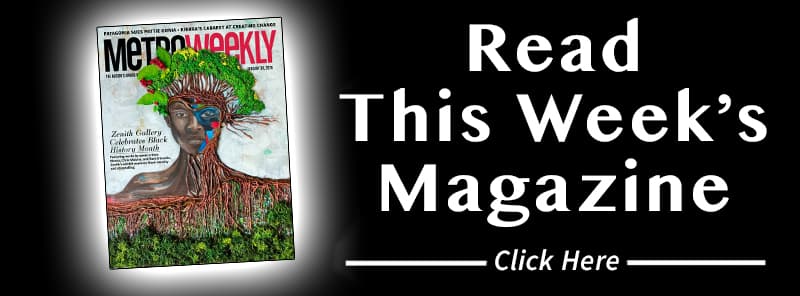
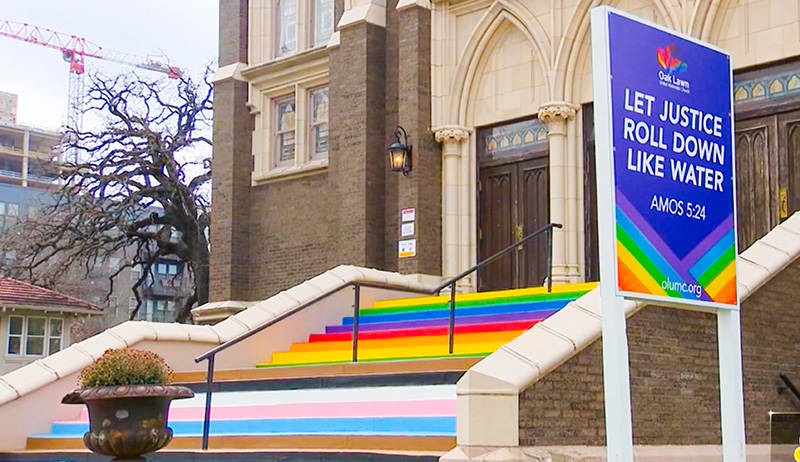
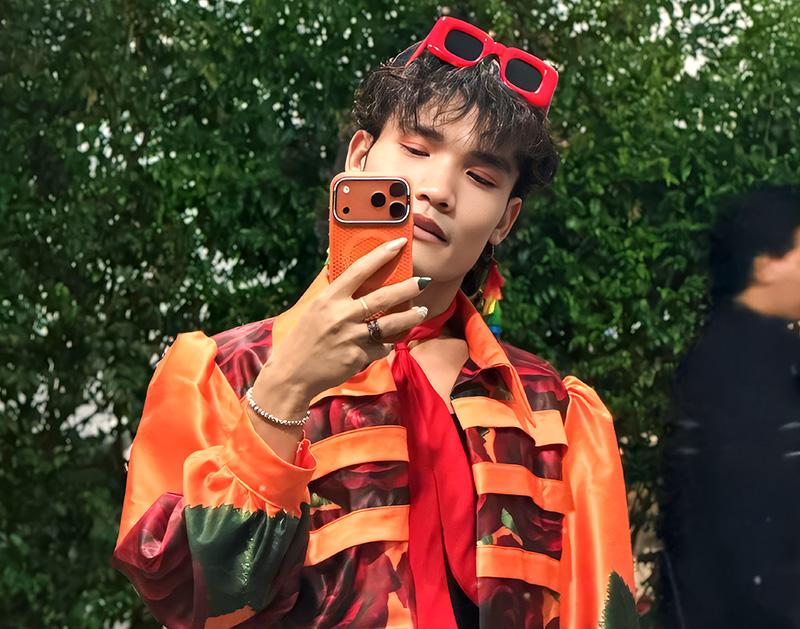
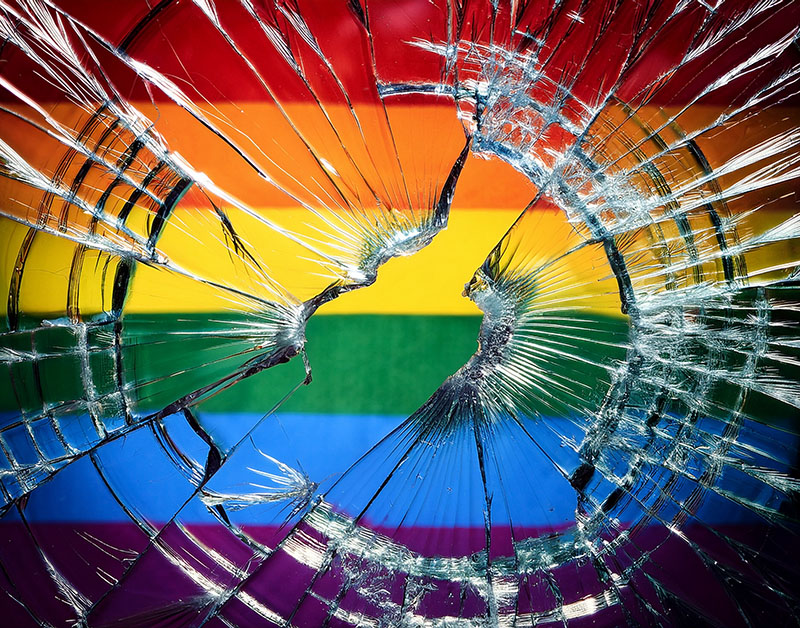













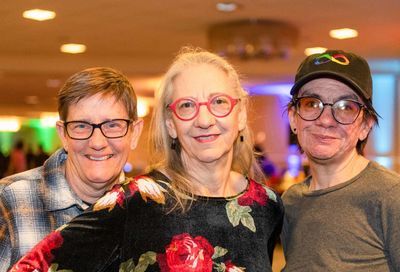
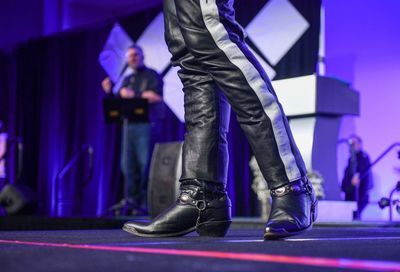
You must be logged in to post a comment.